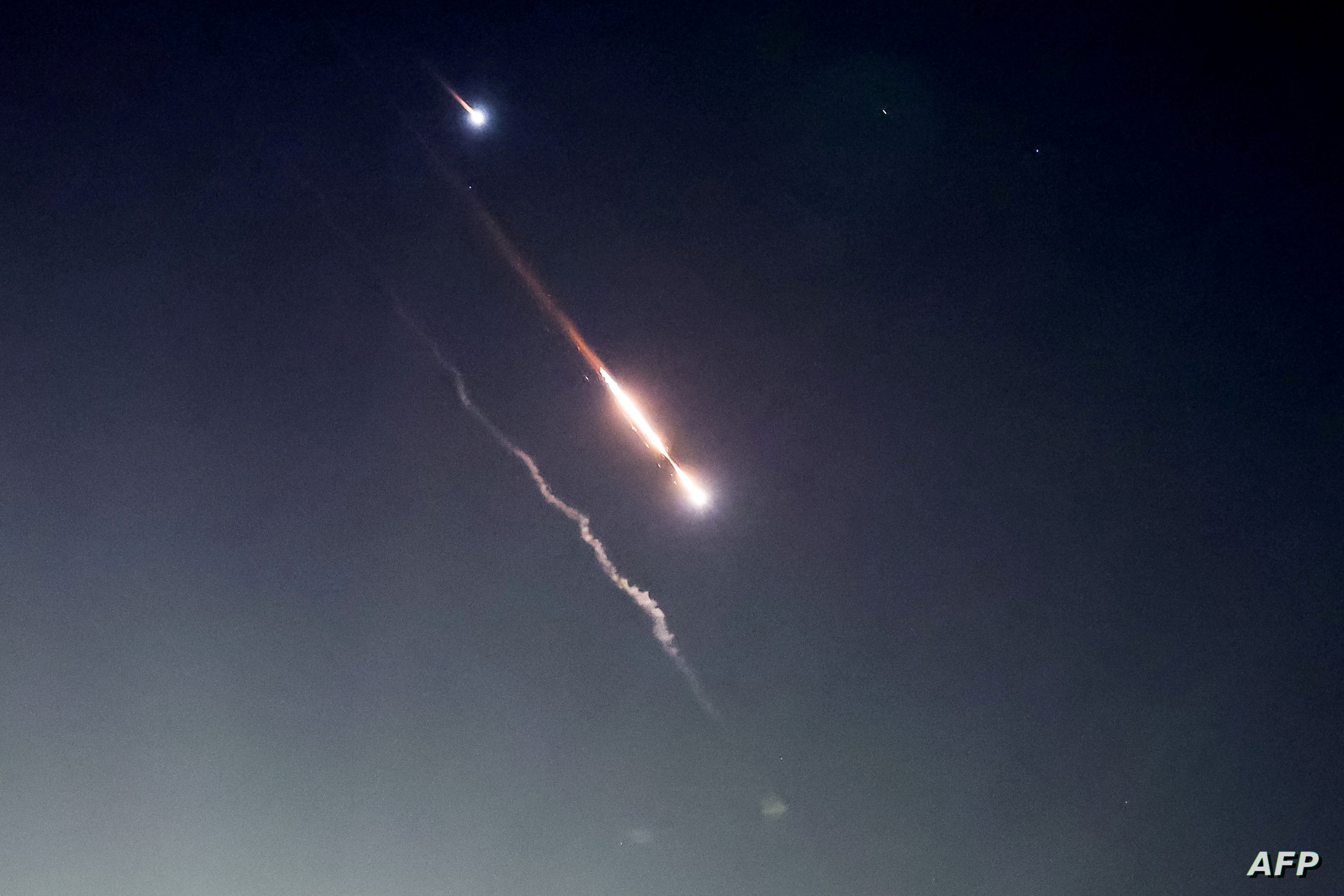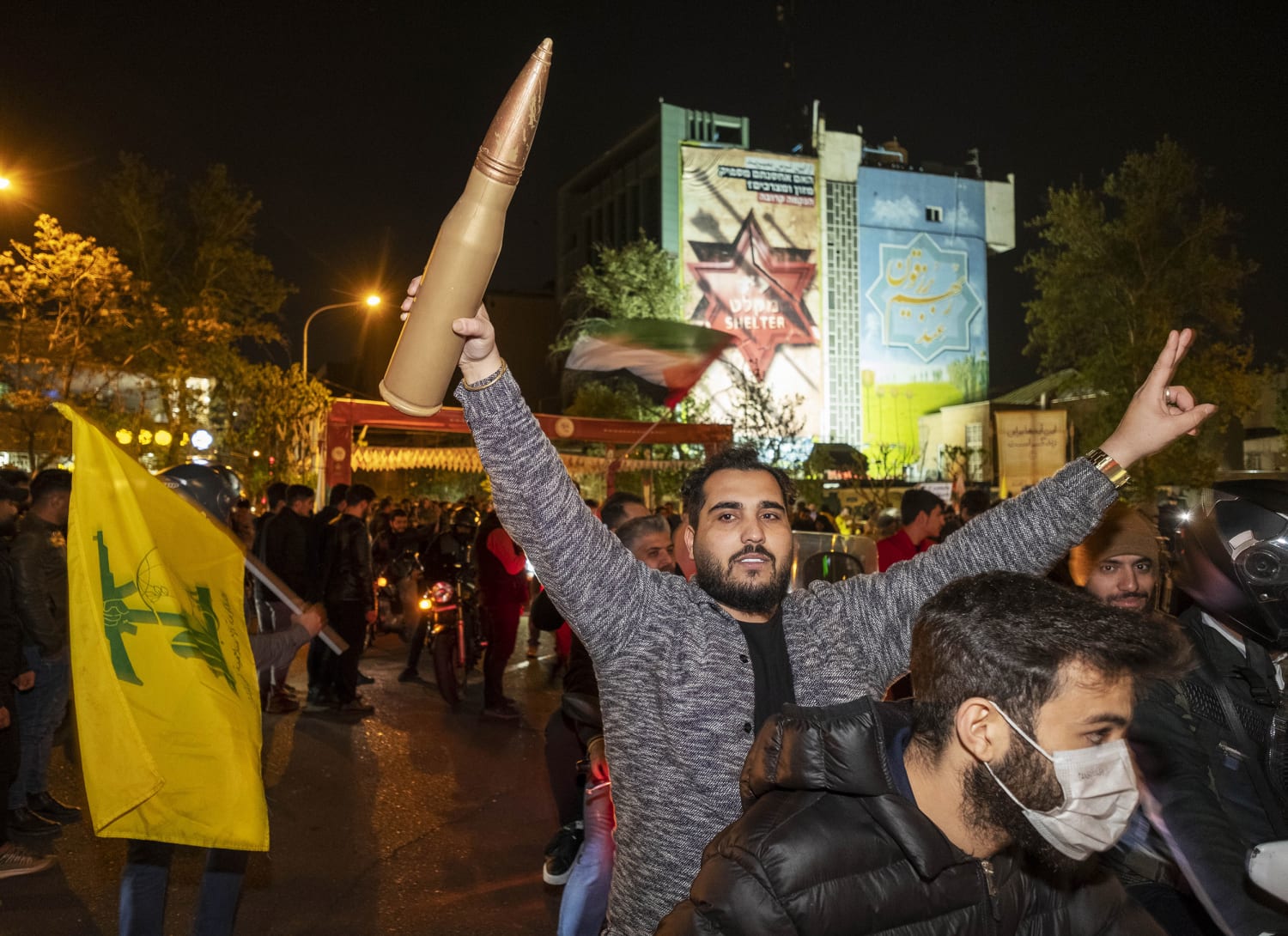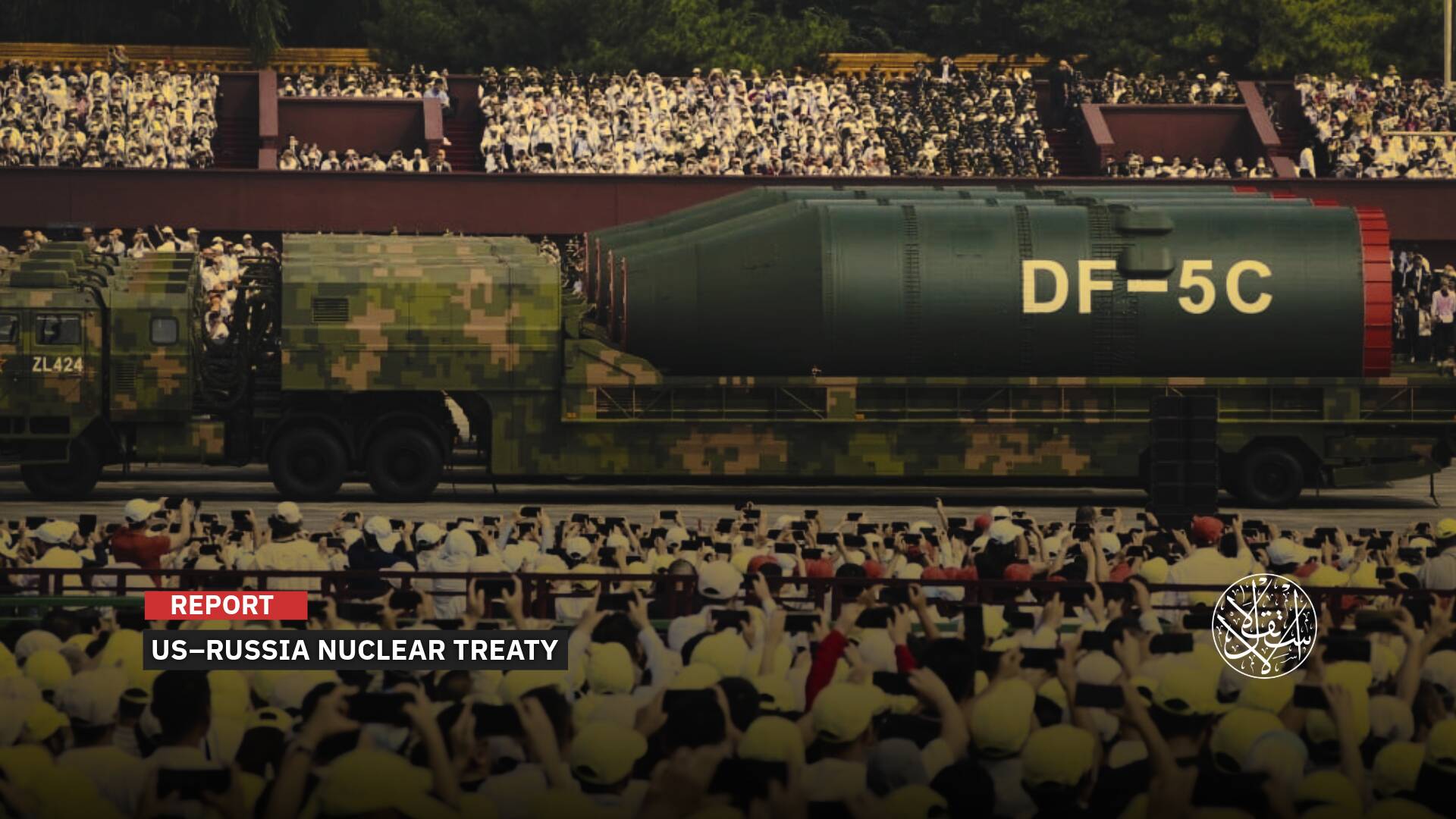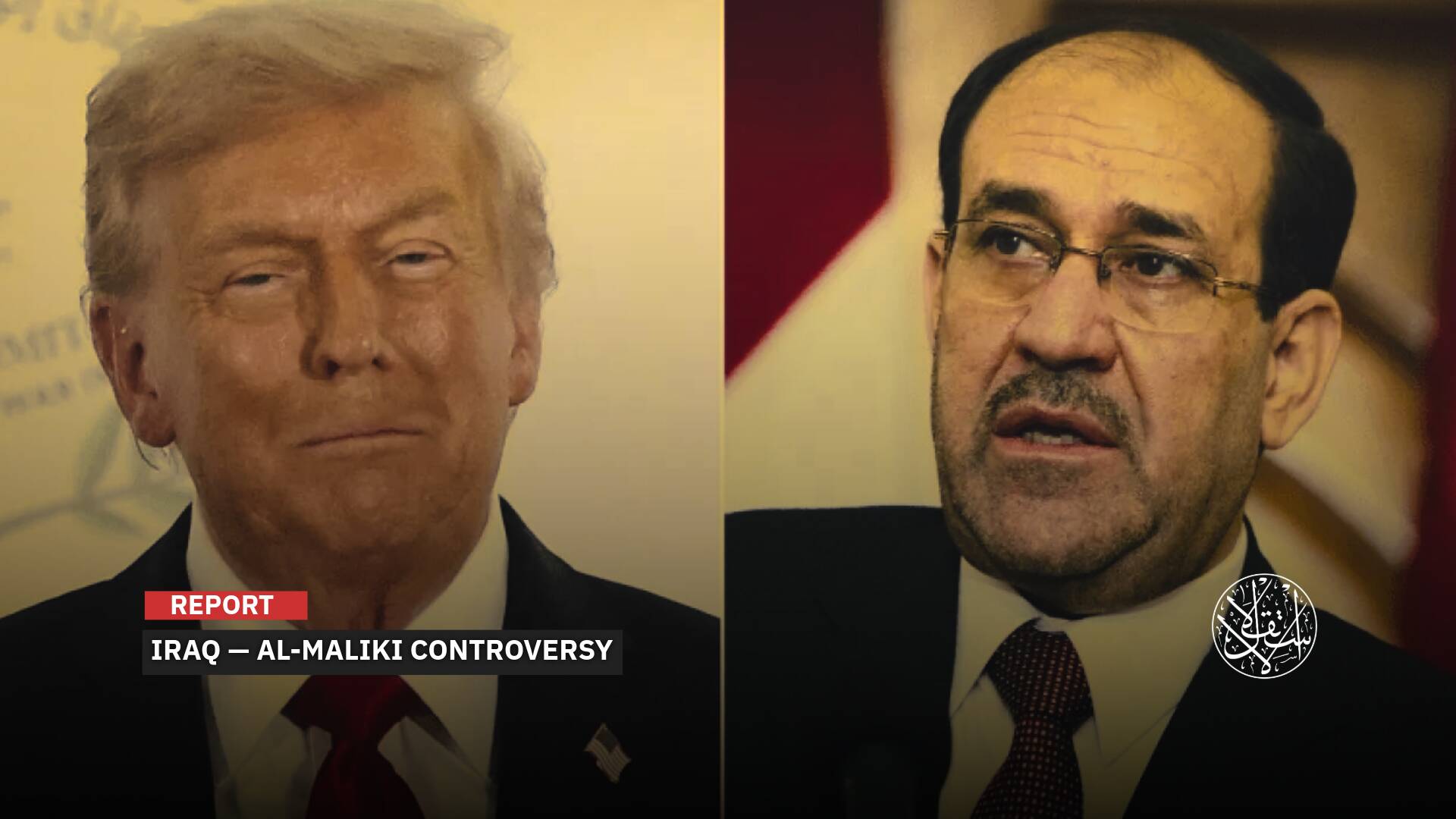Could the Iranian 'Play' Change the Entire Region?

Some activists have cast doubt on the effectiveness of the Iranian operation, labeling it as performative and questioning its ability to deter future Israeli actions.
In the wake of Iran's military action against the Israeli Occupation, a response to the bombing of its consulate in Damascus, social media reactions have been sharply divided.
Many activists have hailed the strikes as a significant psychological blow to the Israeli Occupation, suggesting that the move has eased the pressures of conflict in Gaza and signaled a shift in regional dynamics.
Others, however, have cast doubt on the effectiveness of the operation, labeling it as performative and questioning its ability to deter future Israeli actions.
The discourse has also touched on the broader implications of the strikes, with some suggesting that Iran's actions, while failing to exact a substantial toll on the Israeli Occupation, may nonetheless alter the strategic landscape, particularly in relation to Gaza.
Direct Conformation
Critics argue that the pre-announcement of the strikes diminished their impact, drawing parallels to past military operations that benefited from secrecy.
Amidst these discussions, Basel Reda, an international relations expert, has weighed in, suggesting that Iran's response was measured and calculated within the established rules of engagement.
In his interview with Al-Estiklal, Reda posits that the strikes serve multiple purposes: they are a show of force to the Iranian public, a message of direct confrontation to the Israeli Occupation, and potentially a prelude to more impactful actions should hostilities continue.
Reda's analysis underscores the complexity of the situation, highlighting the interplay between public perception, military strategy, and the ongoing negotiation of power in a volatile region.
"As the dust settles, the long-term effects of Iran's decision to launch this operation from its own territory, bypassing proxies, remain to be seen. The incident marks a new chapter in the enduring conflict, with potential ramifications for the balance of power in the Middle East," Reda says.
Tehran has acknowledged launching a barrage of drones and missiles, framing the action as retribution for the recent attack on its consulate in Damascus.
The announcement, which came before the drones had even crossed into Israeli airspace — a journey estimated to take between seven to nine hours — signaled the end of the assault.
Iran's strategy appears to be one of calculated response rather than escalation. Engaging directly with the Israeli Occupation, and by extension its Western allies, would jeopardize Iran's broader regional ambitions.
Yet, the need to retaliate against perceived provocations remains, driven by a desire to maintain its standing and enforce red lines.
This sentiment was echoed on the streets of Iran, where citizens celebrated what they viewed as a successful operation, despite the fact that the objectives of the Iranian government diverge from those of the Palestinian people.
The Iranian Revolutionary Guard's commander, Hossein Salami, characterized the attack as precise and limited, stating that it was proportionate to the "evils committed by the Zionist regime." He further claimed that the operation exceeded expectations, though a full assessment of the impact was still pending.

Gazan Relief
One unintended consequence of the strike was a rare respite for the people of Gaza. For the first time in over half a year, the skies were free from the sound of Israeli planes and bombs, as defense efforts were redirected to anticipate the Iranian strike.
This shift prompted analysts and observers to question the broader implications for Gaza. Would this Iranian response prove beneficial for its residents, and if so, how?
Opinions are split. Some, like Basel Reda, remain skeptical that the strike will significantly alter the situation in Gaza, likening it to other symbolic actions by Iran's regional allies that have failed to change the status quo.
Others, such as Muhammad al-Mukhtar al-Shinqiti, a professor of international affairs, argue that any action against “Israel,” however symbolic, eases the burden on Gazans.
He cites the withdrawal of Israeli forces from Gaza following the attack on the Iranian consulate as evidence of the potential benefits of such strikes, suggesting a strategic recalibration by “Israel” in anticipation of confrontations along its northern borders with Lebanon and Syria, areas under Iran's influence.

Israeli Response
In the aftermath of Iran's retaliatory strikes, the pivotal question is how the Israeli Occupation will respond. Israeli army spokesperson Daniel Hagari has intimated that a military operation in Tehran could be forthcoming, following Iran's actions.
The Israeli Occupation claims to have successfully intercepted the majority of the ballistic missiles and drones, although some military sites did sustain collateral damage.
The Iranian counterstrike, while presented as a reprisal for the assault on its consulate in Damascus, appears to have served the strategic interests of both nations.
Iran has bolstered the narrative of resistance and reaffirmed the loyalty of its allies, while “Israel” stands to gain increased military backing from the United States and broader international support for its operations in Gaza.
Both nations acknowledge the necessity of preserving the current equilibrium, despite their divergent agendas.
The strategic implications of the conflict's potential escalation are profound. The shift of hostilities from the battlegrounds of Iraq, Syria, and Yemen to the heartlands of “Israel” and potentially Iran signals a new phase of challenges for the region. The prospect of missile exchanges moving from Syrian territory into the depths of both nations is a significant, though not singular, harbinger of a looming large-scale armed conflict in the Middle East.
Despite the United States' potential role in moderating the conflict, other regional and international dynamics suggest an increasing likelihood of confrontation with Iran.
It is important to note that warfare, in this context, does not necessarily entail a bombardment of Tehran; the mere perception of an impending war by Iranian policymakers could ignite hostilities.
Basel Reda sees that the overnight events were not merely an exchange between “Israel” and Iran but rather a historic occurrence.
The drone attack, utilizing Iranian technology, marks a significant evolution in the conflict dynamic with “Israel,” which enjoys Western support.
The United States' disclosure that 10 NATO countries were involved in neutralizing the drones underscores the gravity of the situation.
Reda emphasized that, given the global surveillance capabilities, Tehran had no need to notify its adversaries of the attack.
Nonetheless, Tehran reassured the United States that it was not the intended target, thereby seeking to prevent American involvement in any reciprocal action by Iran.










